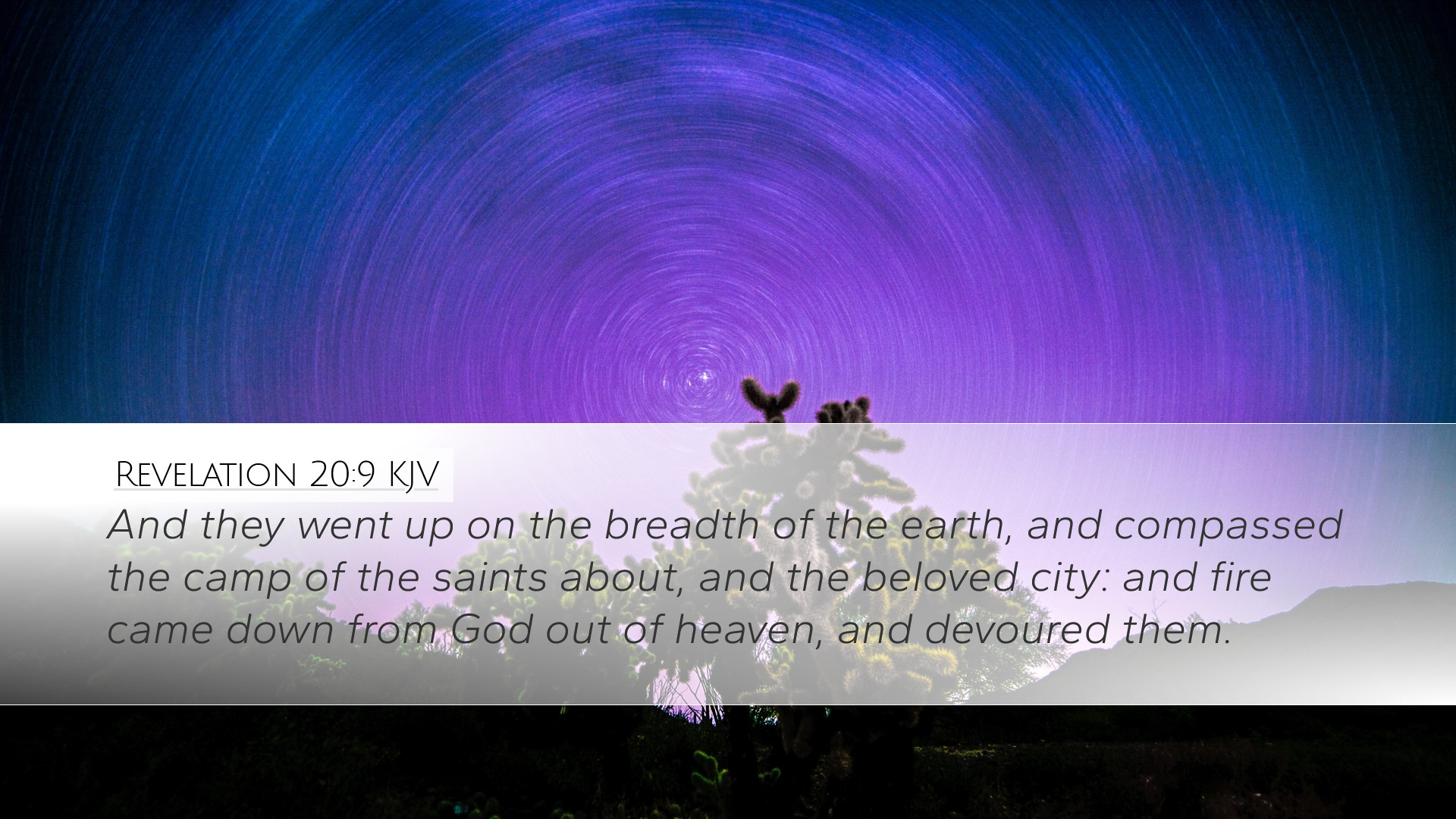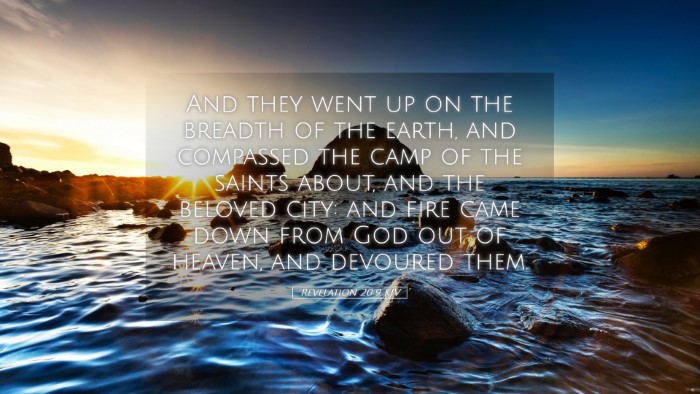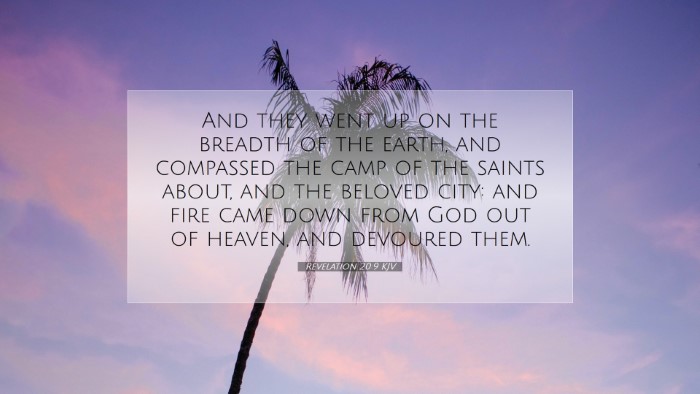Commentary on Revelation 20:9
Text of Revelation 20:9 (ESV): "And they marched up over the broad plain of the earth and surrounded the camp of the saints and the beloved city, but fire came down from heaven and consumed them."
Overview
The passage of Revelation 20:9 presents the climactic confrontation between the forces of evil, represented by Satan and his followers, and the redeemed community, symbolized by the camp of the saints and the beloved city. This verse encapsulates the ultimate judgment of God upon those who rebel against Him. It serves as a profound theological affirmation of the victory of divine justice over evil.
Contextual Considerations
The context of this verse involves the broader narrative of Revelation, particularly surrounding the fate of Satan and the final judgment. After being bound for a period of time, the adversary is released and leads a last revolt, which culminates in this siege against the people of God.
Interpretative Insights
-
Matthew Henry:
Henry emphasizes the contrast between the fate of the saints and that of the rebellious. The 'beloved city' signifies the New Jerusalem, the ultimate dwelling place of the righteous. The gathering of fire from heaven symbolizes God's active and immediate judgment against insurrection.
-
Albert Barnes:
Barnes views this passage as a finality of divine judgment, highlighting that despite their numbers and boldness, the forces of evil are swiftly consumed by heavenly fire. He interprets the 'broad plain' as a metaphor for the logical extension of rebellion against God, showcasing the futility of opposition to divine authority.
-
Adam Clarke:
Clarke remarks on the importance of the 'camp of the saints' being representative of security in God’s presence, contrasting with the futility of the opposing forces that surround them. Clarke also analyzes the nature of fire as a purifying force, indicating that divine judgment is both punitive for the wicked and redemptive for the faithful.
Theological Themes
-
Divine Sovereignty:
This verse powerfully illustrates God’s supreme power over creation, affirming that all entities must ultimately submit to His authority, even in rebellion.
-
Judgment and Justice:
The imagery of fire descending from heaven underscores the swift and decisive nature of God's judgment. It emphasizes a thematic concern in Scripture that divine justice ultimately prevails.
-
Hope for Believers:
For those who are faithful, this passage offers hope. It reassures the faithful that although they may face persecution and opposition, God protects His own and will deliver justice in His time.
Practical Applications
-
Encouragement in Persecution:
This text serves to encourage believers facing opposition, affirming that God is aware of their struggles and will ultimately vindicate them against all evil.
-
Call to Faithfulness:
Pastors and leaders can draw from this text a call for perseverance in faith. The ultimate outcome assures that God's purposes prevail against all odds.
-
Awareness of Ultimate Accountability:
This passage invites reflection on personal accountability before God. The certainty of judgment encourages a life lived in righteousness and faithfulness.
Conclusion
Revelation 20:9 is rich with themes of divine justice, the sovereignty of God, and the hope granted to believers. The insights provided by historical commentators such as Matthew Henry, Albert Barnes, and Adam Clarke accentuate the gravity of this passage, reinforcing the certitude that God will triumph over evil. This verse not only addresses the eschatological hope of the faithful but also serves as a stern reminder of the consequences of rebellion against divine authority.
Reflection Questions
- How does the imagery of judgment in Revelation 20:9 challenge or encourage your current understanding of God’s justice?
- In what ways can you draw strength from the assurance that God protects His people during times of struggle?
- How can this passage inform your approach to evangelism and confronting the reality of sin and rebellion in the world?


